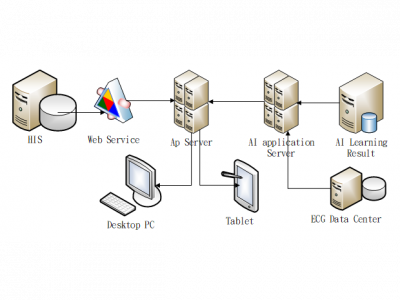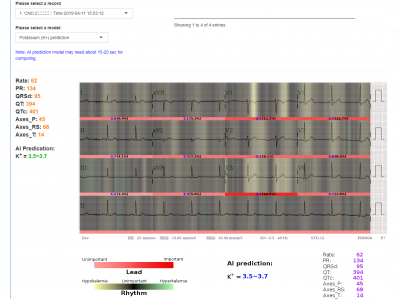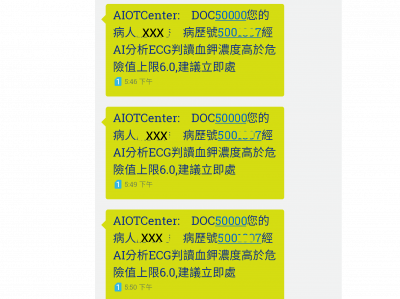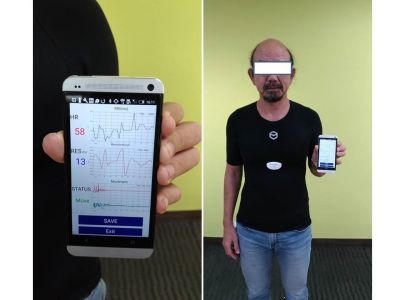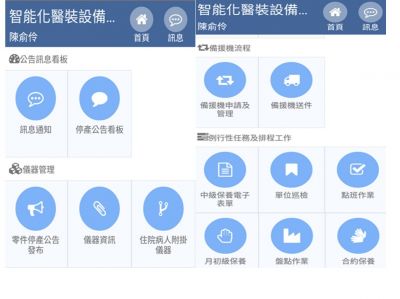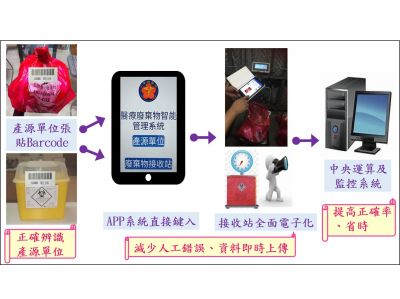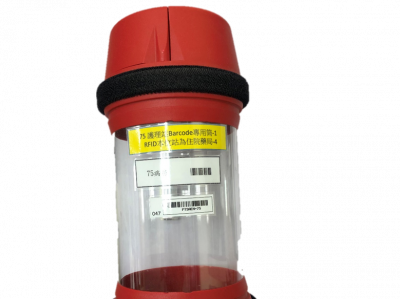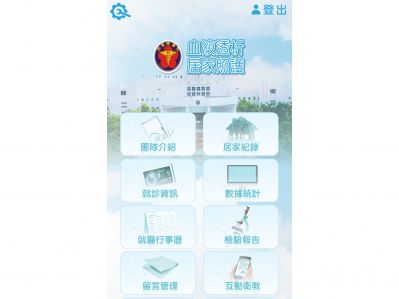Medical Image Analysis System for Artificial Intelligence
Tri-Service General Hospital
Smart Hospital Solution Clinical Decision Support System AI artificial intelligence Big data analysis Medical computer and tabletInformation
Benefits
In the introduction of sharing experience, in the initial period, the ECG data center data was used as the data source to transpose and clean the relevant data such as the ECG file. A total of 66,321 ECG map files and blood potassium (K +) test data corresponding to the same visit were used. Data range: May 11, 2011-Dec 31, 2016. In addition, through the Internet service program, the blood potassium ion test data of the data center is accessed, the electrocardiogram of the same visit is matched with the blood potassium ion test report, and the invalid data is removed for data preprocessing. This data is then connected to an AI deep learning machine through a web service. It also uses artificial intelligence algorithms based on convolutional neural networks (CNN) to perform machine deep learning. The learning results of each stage are measured in batches with application accuracy. After completion, the clinical staff will actually test the relevant functions and verify the accuracy of the AI. Through 2 years experience, 4 years experience, 13 years experience of emergency physicians and 1 year experience, 2 years experience, 9 years experience of cardiology attending physicians to interpret the electrocardiogram image with AI, calculate the relevant sensitivity and specificity results. After the accuracy of AI interpretation exceeded that of the clinician, he set out to interface HIS data for function development, private cloud deployment, and connection to related medical systems. Finally, the whole hospital was tested online to collect user feedback and monitor service usage.
In efficiency:
1. Reduce decision-making time for medical operations. (It takes 40 minutes to perform a blood test urgently, and the AI reading is only 10 seconds.)
2. Assist in an emergency medical condition.
3. Improve the quality of medical services.
After feedback from clinicians, patients with acute serum potassium abnormalities will be processed immediately through AI interpretation and reported and processed 30 minutes later through the blood laboratory. Those who have advanced treatment on the patient's recovery will have better recovery results. Although the difference is only 30 minutes, it is very likely that the patient will be admitted to the hospital on the day of recovery or in poor condition. This is a very helpful tool in emergency medical treatment.
Clients
Tri-Service General Hospital
